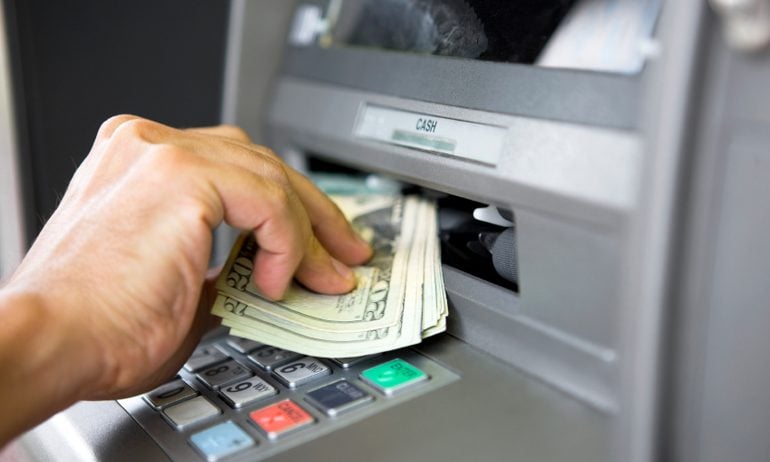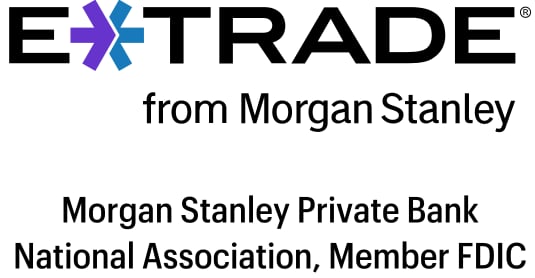An ATM Took My Money: Now What?
Contact your bank immediately and provide deposit details (such as location and amount).

Many, or all, of the products featured on this page are from our advertising partners who compensate us when you take certain actions on our website or click to take an action on their website. However, this does not influence our evaluations. Our opinions are our own. Here is a list of our partners and here's how we make money.
Standing in front of an ATM that just ate your cash deposit without crediting your account or issuing a receipt can leave you feeling helpless, and even hopeless. Just ask Linda Murray Bullard, who recently found herself in that situation.
“A horrific experience!” says Murray Bullard, who owns a business consulting firm in Chattanooga, Tennessee. Bullard eventually received her credit, but she had to act fast.
If an ATM takes your money, here’s what you can do.
Stand your ground and contact your bank
Your first move should be to alert your bank or credit union, which will investigate before crediting your account. Although it may not come naturally to some people, the name of the game is keeping your cool. For Murray Bullard, that meant staying put and immediately reaching out to her bank.
“When it chewed up my money, I refused to move before I contacted the bank and spoke to a live person,” she says.
“The lady assured me it would be corrected the next business day and someone would call me as soon as it was corrected. They did just what she said, and my deposit was credited.”
» If you use ATMs frequently, here are the top banks for avoiding ATM fees and getting fees reimbursed
How common Bullard’s experience is isn’t clear. The ATM Industry Association doesn’t have data that would show the scope of this issue, according to Michael Lee, the group’s chief executive, who says he hasn’t “heard of a single reported case of this happening.” The American Bankers Association didn’t respond to requests for comment when asked about such incidents.
Murray Bullard, however, certainly isn’t alone: Based on scores of online message board discussions on the topic, cash-hungry ATMs aren’t a completely unheard-of phenomenon. And considering that 68% of Americans use ATMs at least once a month, according to a 2014 Nielsen study, it’s worth knowing how to respond to this potentially frustrating situation.
Confirm that your bank performs an investigation
Shane Allen, media relations director of Personal Trainer Food, a Fort Worth, Texas-based company that helps consumers create healthy meal plans, found himself in a similar predicament a few months ago when he tried to deposit $800 at a Capital One cash machine.
“The ATM took the cash and printed out a receipt saying there’d been an error, and that I should call a certain phone number,” Allen says.
His bank assured him that it would look into the situation when he called and credited his account for the time being.
“They warned me that they would investigate all the deposits that day," Allen says, "and if for some reason they determined the deposit was less, they’d take it out of my account.”
A month later, Allen received a letter in the mail saying the bank had completed its investigation and determined that he had, in fact, deposited $800.
“Overall, I think they handled it very well,” he says. Capital One didn’t immediately respond to a request for a comment.
If an ATM eats your deposit, you should contact your bank immediately, says Kristopher Dahl, a spokesman for Wells Fargo. That will spur an examination of the incident.
“I can’t share much information about the investigation process, but all transactions are logged, and we utilize our logs to research these transactions,” Dahl says, adding that those instances happen rarely. “If a problem with an ATM results in any account fees, we will also credit their account for those fees.”
Note the time of the transaction, gather evidence
As well as eating cash, ATMs also swallow checks on occasion, as Natalie Nicole Gilbert can attest to.
“If you must use an ATM and it goes awry, note the time of the failed deposit,” says Gilbert, a Los Angeles-based musician who recently tried depositing a check worth about $1,000.
Because she didn’t usually use that particular account to make deposits of that size, the transaction “tripped a security feature that suspected potential fraud,” Gilbert says. As a result, her financial institution froze her funds while trying to verify that the check was valid.
“It was particularly inconvenient, as I’d intended to pay my rent that month with that check, and the hold didn't release for another week or more after my rent was due,” she says.
Gilbert recommends that customers take smartphone pictures of the error screen on the ATM if one comes up during a botched transaction. She adds that people may want to copy the serial numbers on bills before inserting currency into a machine. The more evidence you can gather, the better.
Responding quickly is crucial
Although faulty ATMs can make you feel extremely powerless, the ball is very much in your court to fix the situation. Act quickly to get credit for your money.

Member FDIC
Discover® Cashback Debit

N/A
$0

Deposits are FDIC Insured
Chime Checking Account

N/A
$0

Member FDIC
Varo Bank Account

N/A
$0

Member FDIC
E*TRADE Max-Rate Checking

3.00%
$15








